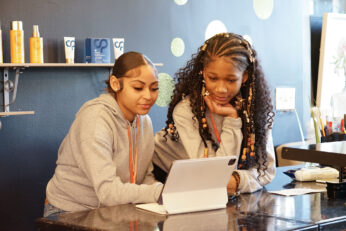It goes without saying that the last few years have seen some of the greatest economic growth since the 2008 downturn. Just last week, it was announced that close to 295,000 new jobs were created in the month of February. But with the growing economy has come a growing problem.
New attention is now being paid to what has been coined the skills gap in our country. The skills gap is growing disconnect between the skills that employers deem important to the workplace and the skills that new workers bring with them.
A January 2015 article in the Washington Post entitled, “Why so many college students are failing to gain job skills before graduation” pointed out that employers find recent college graduates are “severely lacking in some basic skills, particularly problem solving, decision making, and the ability to prioritize tasks.” Research done into the skills gap shows that while many college students believe they are prepared with these skills, their employers disagree.
We’ve reached a point where many of the newly created jobs are going unfilled. Even with years of technical training and specialized education, workers are lacking some of the most foundational skills required to be successful in the workplace.
Here in Jamaica Plain we are taking the skills gap head on. Skills are at the core of what we do at Apprentice Learning. Last week I observed our Apprentices at the Wyss Institute at Harvard University learn more about nano-materials and DNA then most of the people in my college graduating class, and that was only the orientation. An apprenticeship at the Wyss Institute for Biologically Inspired Engineering is a parallel work experience, meaning that the apprenticeship is designed to mimic the work experience of professionals in the field. After their orientation, the Apprentices get right to designing. With just a set of bottle caps and magnetic chips, the Apprentices lived through a typical Wyss project. With far less formal education or training, the 8th graders used excellent communication skills and teamwork to accomplish their goal, the same kind of work skills that the highly trained scientists and engineers in the room use on a daily basis.
This kind of skills practice is true across all of our sites. An Apprentice at First Literacy practices organization while at the Game Engagement Lab at Emerson College they practice attention to detail. Helping customers at Boing Toy Shop entails good communication; while attentiveness and kindness is essential in the care of young children at Horizons for Homeless Children.
Employers in all fields believe these kinds of skills are essential employee success. I am proud to say that our 8th grade Apprentices are getting a head start. When they are at work, the experience they gain may not be specialized training in game development or bioengineering. Instead, they practice skills most valuable to the workplace, communication, punctuality, teamwork, and reliability, skills that will matter for life.


